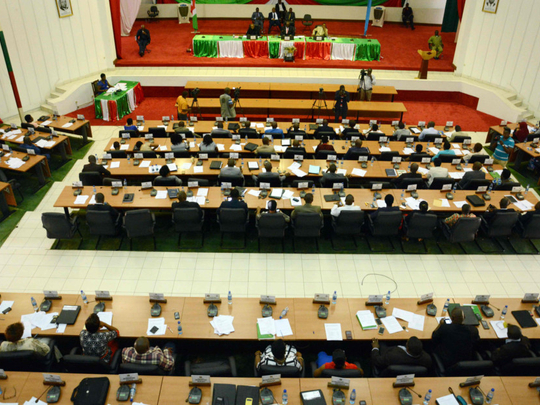
On the face of it the existence of an international body tasked with investigating war crimes, and genocide was a moral coup for humanity. The International Criminal Court (ICC) in The Hague ratified by 123 states was meant to stand as the world’s conscience, a deterrent to those who consider human lives cheap and as an impartial dispenser of justice with the accent on impartial. In reality, it’s been anything but.
It’s no wonder that many African countries feel they’ve been unfairly singled out when since its inception in 2002 the only alleged criminals tried have been Africans. The African Union has slammed the court as being racist and South Africa and Burundi have had enough; they are both in the process of cancelling their respective memberships amid a disapproving clamour from human rights groups.
To be fair, the ICC isn’t so much racist as cowardly. Major world powers have been kept off limits for obvious reasons. It’s so much easier and less controversial to pursue the little guys who signed up to the court in good faith and those who didn’t without big brothers holding the power of veto in the United Nations Security Council.
Secondly, the system is weighted against members whereas non-members are off the hook unless they are referred to the court by a Security Council resolution. This means that the biggest offenders go scot free.
For instance, Syria’s President Bashar Al Assad can sleep soundly at night in the knowledge that his country hasn’t signed up to the ICC and Russia has his back in the Security Council.
Almost daily we are subjected to the horrors his regime’s air force has perpetrated against a civilian population.
Entire families wiped out. The lifeless bodies of toddlers pulled from under rubble; others gasping for air as a result of chemical attacks. Yet, the court’s hands are tied.
Likewise, the ICC has no power to protect Palestinians. Non-member Israel arrests children for the ‘crime’ of throwing stones, demolishes Palestinian homes at will and regularly bombs and strafes the besieged Gaza Strip where more than 1.5 million Palestinians have been virtually imprisoned for nine years. Israel is, of course, under the unconditional protective umbrella of the United States, which did enthusiastically promote the Rome Treaty but has avoided ratification.
The US sees itself as the world’s policeman and its presidents as ‘Leaders of the Free World’ but far from showing an example the sole goal of administration after administration is to ensure American officials and service personnel can never be held accountable while abroad. And to that end, its allies have been leaned on to sign one-way agreements to that effect.
It’s almost certain that George W. Bush and/or his British sidekick Tony Blair will ever see the inside of any court over their monstrous invasion and occupation of Iraq on cooked-up pretexts, one of this century’s greatest man-made tragedies impacting the lives of many millions.
Stripping big five of their veto power
Earlier this year, the US military ignored multiple warnings from Doctors without Borders before attacking a hospital in Afghanistan’s Kunduz province. A senior US commander described the attack as “human error”. Some 42 civilians, including patients, were killed, but that was no war crime, merely an innocent mistake, which, by the way, is just one of many.
One of the ways to give power to the ICC’s elbow would be to strip the Security Council’s big five of their veto power, but that’s not about to happen because doing so would leave them (and their allies) exposed.
Don’t be surprised if many more, perhaps even all, African nations follow South Africa’s lead. It’s in their own interests to do so when they are the only ones falling under the ICC’s microscope ... and for far lesser crimes than those currently being committed by non-ICC members or shielded by Security Council veto-holders. Given its record, without the ability to indict Africans, the court would be seen to be nothing more than an impotent, expensive white elephant.
In my view, the ICC should be disbanded because it operates on the principle of one law for the less influential while the mighty enjoy immunity from prosecution. Justice should be administered to all else the result is gross injustice. African states have been unjustly victimised by a hamstrung court seeking to justify its existence. Kudos to Pretoria for facing up to that incontestable truth and acting accordingly!
The international community should come up with an equitable system that would hold all states accountable regardless of their military or diplomatic status, failing which there should be a broad acknowledgement that the only prevailing standard is ‘might is right’.
Linda S. Heard is a specialist writer on Middle East affairs. She can be contacted at lheard@gulfnews.com.










